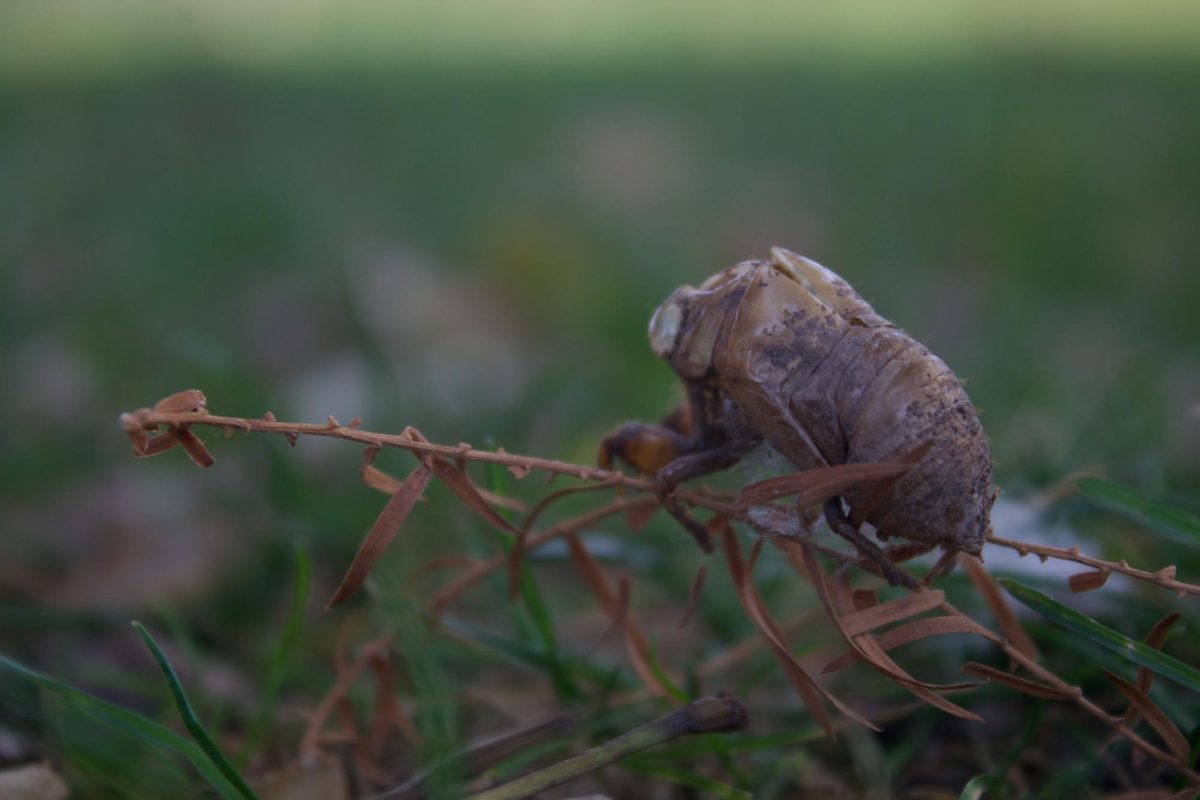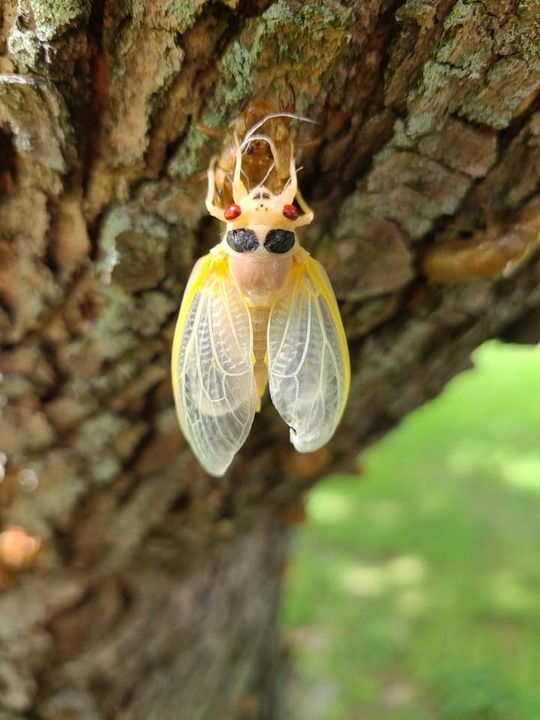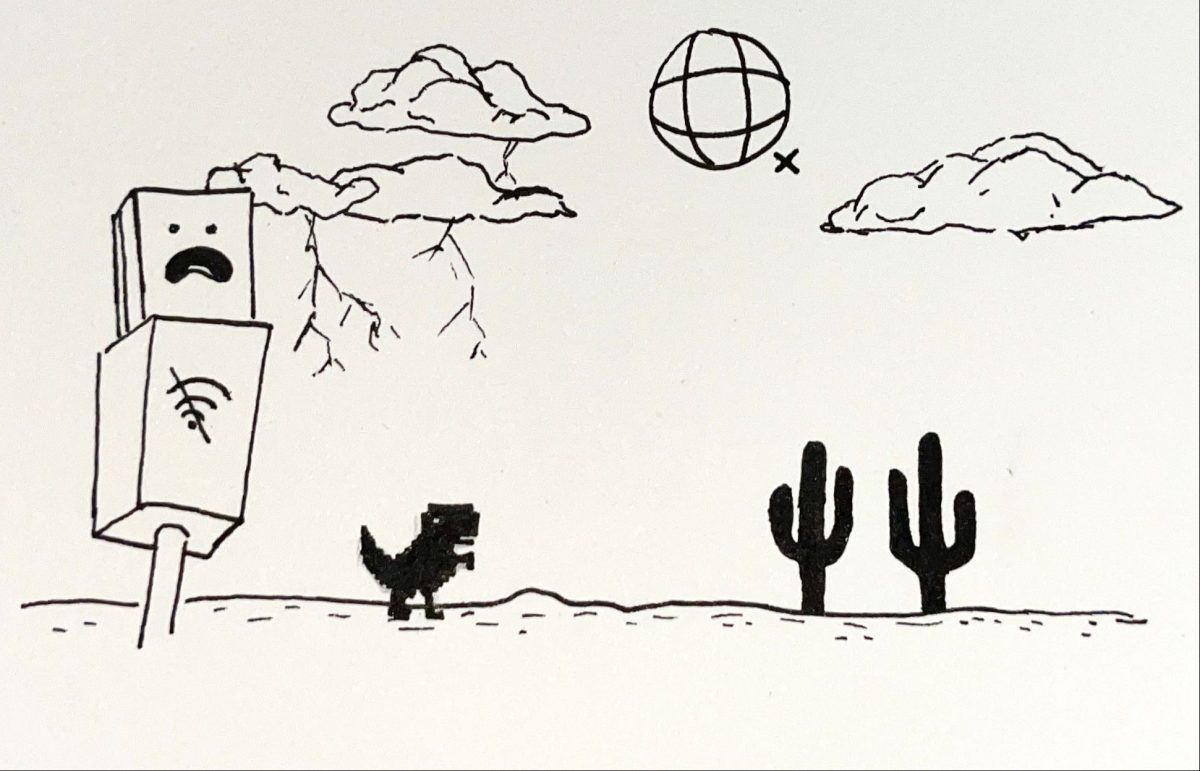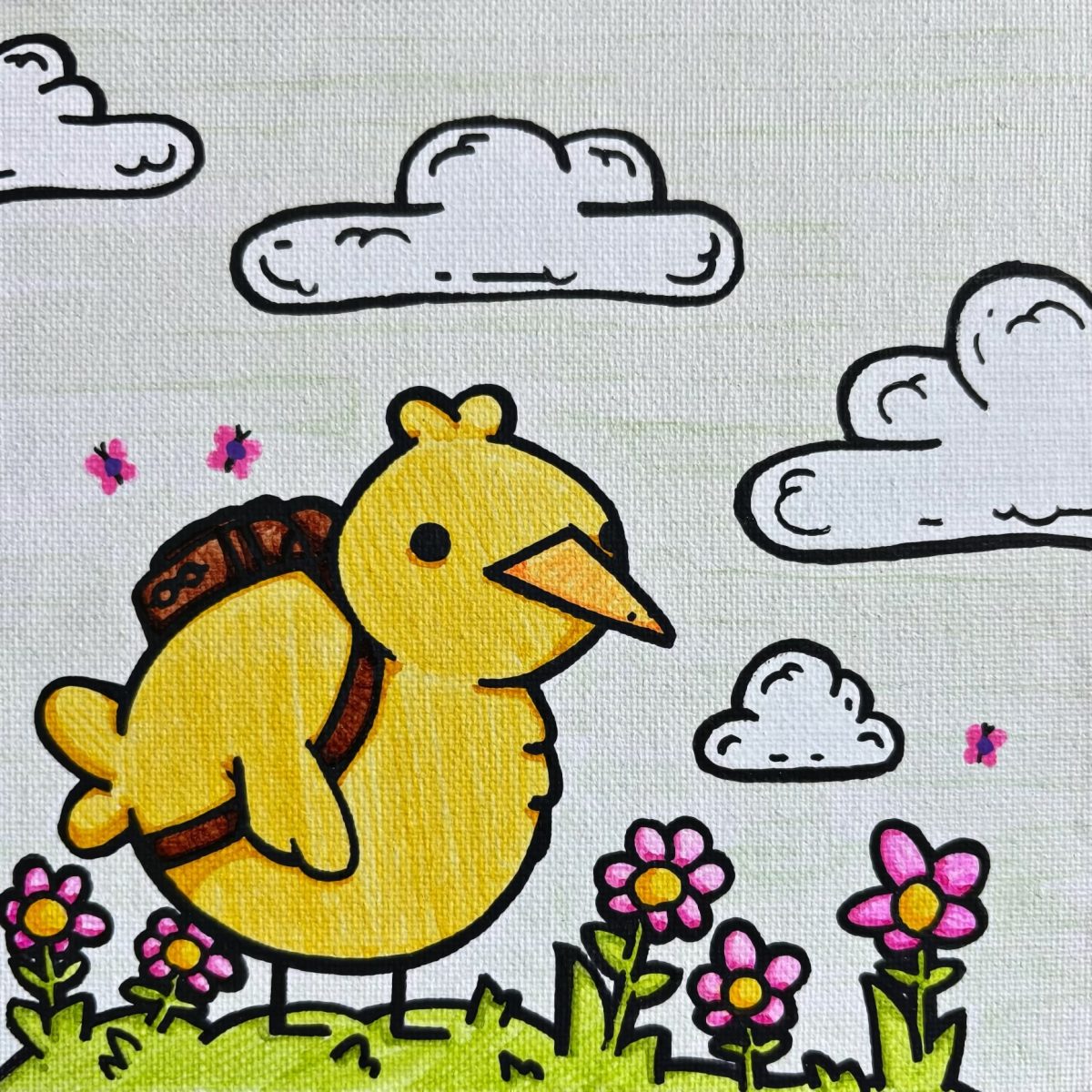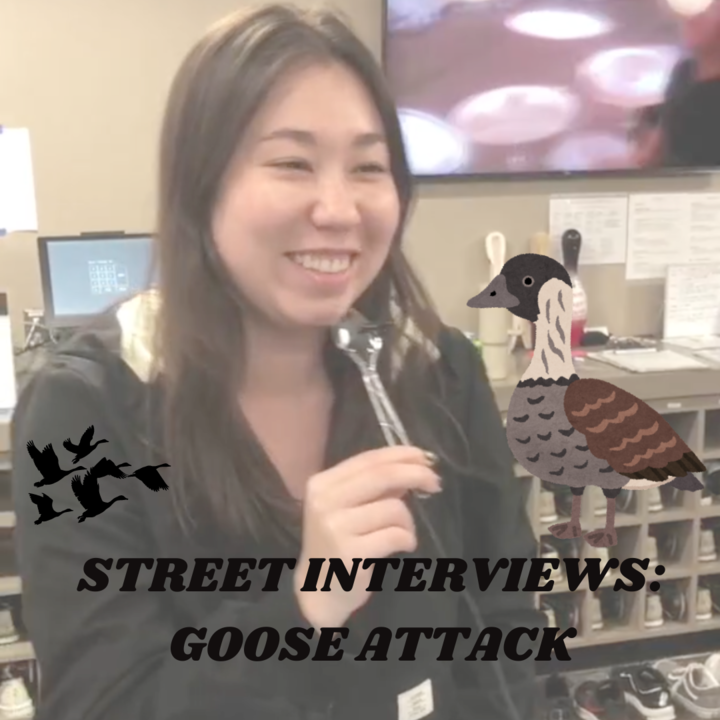As seniors get ready to graduate, cicadas are preparing for a brilliant graduation of their own. When they come crashing through the Midwest — get ready — we’re in for a fantastic show, and maybe we can learn something from the curious insects along the way.
THE CICADA LIFE CYCLE:
Cicadas, the frequent contributors to summer night soundscapes, live through a special life cycle.
Cicada nymphs — the adorable term for immature cicadas — burrow under the soil after hatching from their eggs to feast on tree root sap and molt as they grow.
After an extensive teenagehood — which varies by cicada species — the insects burst from the ground no longer as babies, but as full-grown, winged miracles.
Annual cicadas are what we call the cicadas that emerge every year, while periodical cicadas emerge in large broods after many years underground.
Once mature, cicadas will only live for a few weeks before passing away: dedicating the remainder of their lives to love songs, finding mates and ensuring the cycle continues.
WHAT TO EXPECT OF THE 2024 SWARMS:
The emergence of the cicada is always something to celebrate, but this spring we’ll witness a rare phenomenon.
As Ellie Taylor — a fourth-year PhD. candidate in the department of biological sciences — explained, two periodical broods of cicadas will emerge around the same time, in addition to the annual cicadas we usually see. Depending on soil temperature, this delightful coincidence will likely occur in May or June.
“So for the broods that are coming up, there are 13 and 17 year cicadas, so they spend the majority of their 13 and 17 years of life down in that little stage that’s shedding and growing and shedding and growing. But because it’s every 13 and 17 years and the breeds themselves are in different cycles, you have mismatches of when each breed pops up,” Taylor said. “What’s cool about this year in particular is that you have two broods popping up at the same time. And that hasn’t happened since 1803.”
For the first time since Lewis and Clark’s voyage, hundreds of thousands — and maybe even millions — of the insects will flood the Midwest in a spectacular swarm, moaning louder than lawnmowers.
If this sounds like a nightmare come to life to you, don’t fret, cicadas don’t bite! Try to find appreciation for the ecological benefits the insects will bring.
“That action of burrowing and popping back up actually aerates the soil which is good for the soil. And then they also provide essentially a buffet for all sorts of critters,” Taylor said. “So they’re sometimes known as Copperhead Candy down south, because copperhead snakes will eat them as many as they can, and they’re just munching on them all the time.”
If the cicadas intrigue you, Taylor recommends cicada-lovers check out Cicada Safari, a citizen science project for recording the unique event.
WHY CICADAS DESERVE OUR ATTENTION:
In April, we turned our faces toward the skies for the solar eclipse; bugged eyes and all, these tiny creatures deserve just as much wonder.
It’ll be surreal to witness something so unnaturally natural. Nature’s way of celebrating one big birthday, one huge, teenage graduation. We can view these bugs as a way to commemorate change and embrace it.
No pressure to have a Disney princess moment and greet the flying creatures with outstretched arms — though, by all means, go for it if you have the urge — but allow yourself to be extra appreciative for a day.
Use this huge example of earthly celebration to celebrate big changes in your own life.
Look to your cicadas, the literal ones buzzing about your head and the figurative ones in your memories: old acquaintances embarked away from NIU to seek new adventures.
And if you’re a cicada yourself — headed out soon into the next big change of your lifetime — good luck, sweet friend, and fly high. We’ve loved your sparkling performances, and we’ll miss you.



